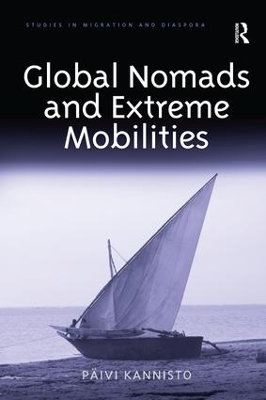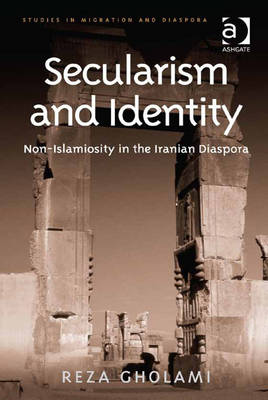Studies in Migration and Diaspora
2 total works
Presenting a ground-breaking study of the emerging phenomenon of location-independence, this book examines the way in which the practices of 'global nomads', who live on the road, without fixed abode, place of employment or localised circle of friends, question many of the unwritten norms and ideals that characterise settled life in societies. With the lifestyles of global nomads blurring the boundaries between travel, migration, and dwelling, Global Nomads and Extreme Mobilities draws on in-depth interviews with a worldwide group of location-independent travellers, together with virtual and instant ethnography and discourse analysis, to show how lives oriented around extreme forms of mobility offer researchers in migration, tourism and mobilities a unique opportunity for examining the complex subjectivities and power relations associated with multi-mobility. With close attention to the nationalistic, political, and travel-related attachments of global nomads and the ways in which their own representation and justification of their lifestyles and subjectivities constitute a power negotiation, the book examines 'global nomads' social and intimate relationships and the forms of exclusion and discrimination that they encounter, raising the question of whether they live inside or outside societies - and indeed, whether there can be any life outside societies. A re-assessment of much contemporary research in the fields of mobility, migration and tourism studies, Global Nomads and Extreme Mobilities will appeal to scholars across the social sciences.
Within western political, media and academic discourses, Muslim communities are predominantly seen through the prism of their Islamic religiosities, yet there exist within diasporic communities unique and complex secularisms. Drawing on detailed interview and ethnographic material gathered in the UK, this book examines the ways in which a form of secularism - `non-Islamiosity' - amongst members of the Iranian diaspora shapes ideas and practices of diasporic community and identity, as well as wider social relations.
In addition to developing a novel theoretical paradigm to make sense of the manner in which diasporic communities construct and live diasporic identity and consciousness in a way that marginalises, stigmatises or eradicates only `Islam', Secularism and Identity shows how this approach is used to overcome religiously inculcated ideas and fashion a desirable self, thus creating a new space in which to live and thereby attaining `freedom'.
Calling into question notions of anti-Islamism and Islamophobia, whilst examining secularism as a means or mechanism rather than an end, this volume offers a new understanding of religion as a marker of migrant identity. As such it will appeal to scholars of sociology, anthropology and political science with interests in migration and ethnicity, diasporic communities, the sociology of religion and emerging forms of secularism.

